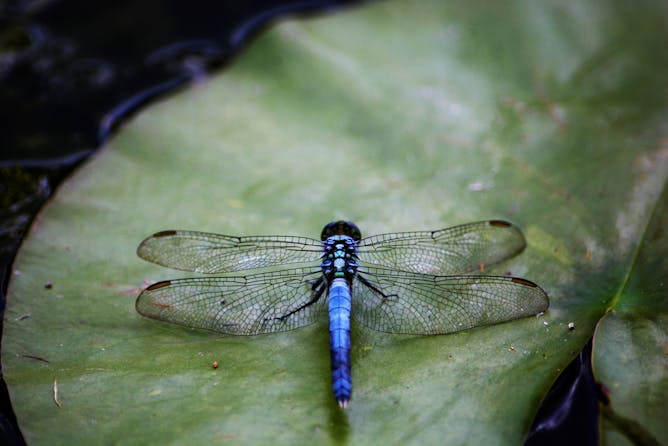|
|
|
|
The debate around racism in football often focuses on how to tackle the more blatant forms of abuse frequently seen in stadiums. But more recently we’ve seen it shift to the question of whether or not sport is the right place for such “political” activity as anti-racist actions – with some politicians suggesting it should remain a neutral ground on all issues.
England men’s football manager Gareth Southgate recently argued that players had a duty to enter the debate on racism, but that when his team took the knee before matches – an action synonymous with the Black Lives Matter movement – they weren’t making a political statement. Yet scholar of race and sport Paul Campbell argues that the long, politically contentious history of racial discrimination in sport shows the act of taking the knee is
always political.
Meanwhile, there was confusion when the government started referring to concerns about the “Nepal variant” of coronavirus, despite the World Health Organization reporting that it was “not aware of any new variant”. But emerging information reveals that the situation is still worth keeping an eye on. And a new study has found that collapsing insect populations are linked to the building of dams, in part because they make water clearer and leave darker aquatic insects more vulnerable to being eaten by fish.
|
Kuba Shand-Baptiste
Society and Arts Editor
|

|
|

PA Images/Alamy
Paul Ian Campbell, University of Leicester
Those who booed the England team for their anti-racist demonstrations are part of a long tradition of silencing protest in sport
|

Marco Taliani de Marchio/Alamy Stock Photo
Sally Cutler, University of East London
There are 36 cases of the so-called 'Nepal variant' in the UK.
|

Over 40% of all insects, like this tropical dragonfly, are in decline.
Scottslm/Pixasbay
Liam N. Nash, Queen Mary University of London
New data from tropical and subtropical regions suggests insects are declining thanks to dammed rivers
|
Health + Medicine
|
-
Peter Sivey, University of York; James Gaughan, University of York
COVID-19 cases and hospitalisations have risen over the past month, but more time to vaccinate people could stem the tide.
-
Daniel Freeman, University of Oxford
People who are afraid of needles are twice as likely to be vaccine hesitant, new research shows.
-
Neema Ghorbani Mojarrad, University of Bradford
Researchers are still uncovering how modern lifestyles may be causing this increase.
-
Sarah Northcott, City, University of London
Being unable to communicate their thoughts and feelings is one reason almost two-thirds of people with aphasia suffer from depression.
|
|
Politics + Society
|
-
Nicholas John Wheeler, University of Birmingham; Marcus Holmes, William & Mary
When Joe Biden and Vladimir Putin meet in Geneva, what will they learn from their predecessors more than 30 years ago?
-
Johannes Novy, University of Westminster
When the pandemic put tourism on hold, many residents heaved a sigh of relief. Will hasty economic recovery plans scupper our chance for a rethink?
-
Evelien Geerts, University of Birmingham
A soldier is on the run after being charged with the attempted murder of the government's leading pandemic expert.
|
|
Arts + Culture
|
-
Sayan Dey, University of the Witwatersrand
The disregarded lives and achievements of Scotswomen in colonial India are brought to light in new research from a 19th century graveyard in Kolkata.
-
Paul Widdop, Leeds Beckett University; Siobhan McAndrew, University of Bristol
The heavily male community of jazz musicians and audiences have created barriers to success for women in the genre.
|
|
Business + Economy
|
-
Heidi Karjalainen, Institute for Fiscal Studies
While it is well known that under-25s are most likely to bear the brunt of job losses when furlough ends, older workers are vulnerable too.
-
Patricia Ranald, University of Sydney
Australia won't release the text until after it is signed.
|
|
Environment + Energy
|
-
Filipe França, Lancaster University; Alexander C. Lees, Manchester Metropolitan University; Jos Barlow, Lancaster University; Yves Bas, Muséum national d’histoire naturelle (MNHN)
We know surprisingly little about the millions of animals, plants and birds that live in the Amazon – here’s how we can understand them better.
|
|
| |
Featured events
|

|
Online, Birmingham, Birmingham, B15 2TT, United Kingdom of Great Britain and Northern Ireland — University of Birmingham
|

|
Online, Plymouth, Plymouth, PL4 8AA, United Kingdom of Great Britain and Northern Ireland — University of Plymouth
|

|
University of Essex, Wivenhoe Park, Colchester, Essex, CO4 3SQ, United Kingdom of Great Britain and Northern Ireland — University of Essex
|

|
University of Essex, Wivenhoe Park, Colchester, Essex, CO4 3SQ, United Kingdom of Great Britain and Northern Ireland — University of Essex
|
|
|
|
| |
| |
| |
| |
| |
|
|
|
|
|
|
|